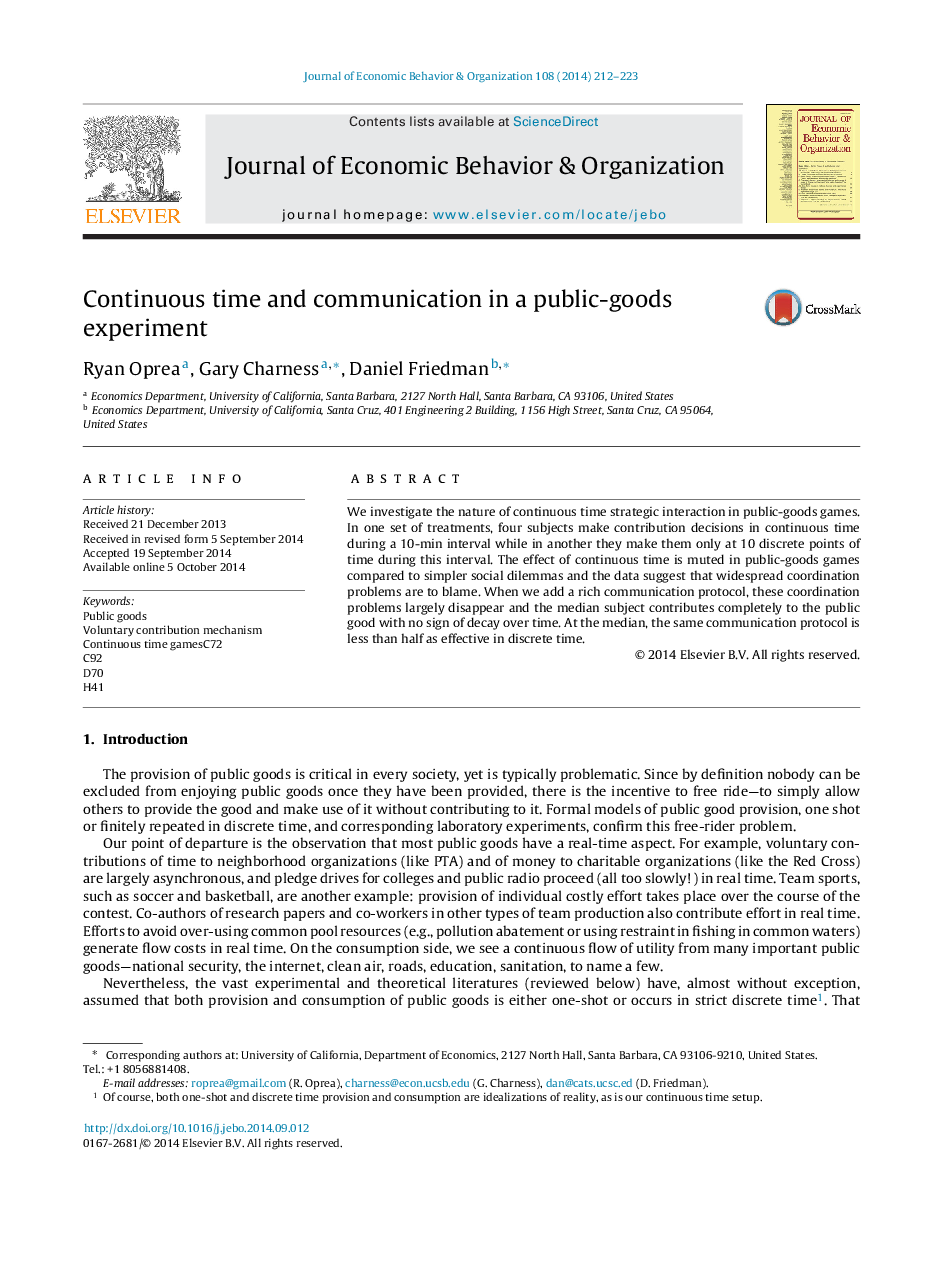| Article ID | Journal | Published Year | Pages | File Type |
|---|---|---|---|---|
| 7243422 | Journal of Economic Behavior & Organization | 2014 | 12 Pages |
Abstract
We investigate the nature of continuous time strategic interaction in public-goods games. In one set of treatments, four subjects make contribution decisions in continuous time during a 10-min interval while in another they make them only at 10 discrete points of time during this interval. The effect of continuous time is muted in public-goods games compared to simpler social dilemmas and the data suggest that widespread coordination problems are to blame. When we add a rich communication protocol, these coordination problems largely disappear and the median subject contributes completely to the public good with no sign of decay over time. At the median, the same communication protocol is less than half as effective in discrete time.
Related Topics
Social Sciences and Humanities
Economics, Econometrics and Finance
Economics and Econometrics
Authors
Ryan Oprea, Gary Charness, Daniel Friedman,
